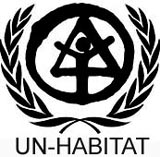THE 21st CENTURY URBAN SCENARIO
|
|
The world is facing a doubling of its urban population, from two to four billion by 2025. How can already stressed local urban governments decently accommodate in this short period a further 2 billion people, many of whom comprising the poorest elements of society? Target 11 of the UN Millennium Development Goals aims to "significantly improve the lives of 100 million slum dwellers by 2020". What support should be provided to help meeting target 11? How can those concerned with urban development - policy makers, civil society, urban planners and other professionals - together with international agencies, including the European Commission, help achieve the Millennium Development Goals? Does coming to, or being born into an urban environment provide more freedom for an individual to develop her, or his, way out of poverty? Cities are places of co-operation where people collectively create a dynamic economy from a diversity of skills and operations. Making cities work for the poor requires recognising their contributions as active citizens: they are the "gold dust" of the city economy. But this is a fragile existence, all too easily blown away. To ensure a process whereby the lowest income worker is not only protected - healthy, sheltered, nourished, secure and free from exploitation - but is also able to progress through improved knowledge and training, requires that they have the capacity as citizens to develop within the city. |
||
|
The scenario explored in this CD-ROM proposes that encouraging the development of "freedoms" for citizens can enhance their potential as agents of change towards reducing poverty. The work of Nobel laureate Amartya Sen - Development as Freedom - can contribute to the drafting of an "Urban Freedom" policy framework. This framework would facilitate the implementation of co-ordinated policies supportive of the ingenuity of the poor in forging solutions for themselves. |
|
|
|
A film reviewing five distinct urban experiences and commented by Amartya Sen illustrates the relationship between community initiatives and Urban Freedoms. A paper by Romi Khosla - Removing Unfreedoms; Citizens as Agents of Change - presents in detail how Sen's Development as Freedom approach can inform an "Urban Freedom" framework. A filmed interview between Romi Khosla and Amartya Sen is also included. At the same time care must be taken to be accurate with data and non-sensational with issues. Myths on urban development are tenacious and may often distort policies and misled professionals within governments and international agencies. These myths are critically discussed by David Satterthwaite in his contribution: The Ten and a Half Myths that May Distort Urban Policies. In addition, the CD-ROM aims to be a useful resource. It contains a selection of publications and research documents as well as Internet links to provide the reader with a comprehensive range of material and sources relating to urban development. The world already has good examples of what to do to make cities work better for the poor, and on how the international community can offer support. This year theme of City to City co-operation represents a chance for international agencies to raise their awareness and interest on the practical solutions that exist and that are being implemented. The world has the resources. What is needed is a greater political will to fund and to implement these solutions on a broad scale. This CD is a contribution to achieving this awareness, interest and political will. |
||
|
This CD-ROM is presented by UN-Habitat and DFID on the occasion of World Habitat Day 7 October 2002. It was commissioned by Michael Parkes, Director of the UN-HABITAT Liaison Office Brussels, and produced under the direction of Michael Mutter, Senior Architectural and Urban Planning Advisor, the Urban Development Team, Infrastructure and Urban Development Department (IUDD), of the UK Department for International Development (DFID) by Sikandar Hasan and Anna Soave, Development Planning Unit (DPU), University College London. |
